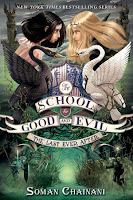(In which I embarked on a short trip away from fantasy.)
***
It is starting to become a habit. But it’s a habit I think I won’t regret, or stop doing.
What I mean is, this trailer.
And then this book.
The knot I felt in my stomach the moment Ed Sheeran was introduced by that strum is undeniable. I knew the movie is going to be painful -- like Nicholas Sparks and John Green kind of painful. But I took the risks.
The knot I felt in my stomach the moment Ed Sheeran was introduced by that strum is undeniable. I knew the movie is going to be painful -- like Nicholas Sparks and John Green kind of painful. But I took the risks.
And after reading the novel, I realized I wasn’t wrong. Well, I wasn’t entirely wrong.
Lou (short for Louisa) has lived a pretty normal life in Stortfold, even boring to some people’s standards. When The Buttered Bun, the café she’s worked in for the last six years, closed up shop, she was forced to seek out employment in the Job Center, eventually ending up as a carer to Will Traynor, a wealthy quadriplegic.
Camilla, Will’s mother, hired Lou primarily because she wanted her to cheer Will up since Lou is apparently bereft of any medical training. Lou struggled to survive Will’s constant sarcasm and downright rudeness because her family needs the money. As Will starts to warm up to her, Lou hears (in yet another of her eavesdropping accidents) that Will intends to commit assisted suicide in Dignitas, a Swiss clinic. What’s worse is that Camilla agreed to it.
Torn between leaving the Traynors and helping Will choose to live, Lou decided that she will do anything to make him see how beautiful life is, despite the decision’s potential destructive effect on her own.
Me Before You is a fresh take on romantic fiction. It has just the right combination of wit, comedy and tear-jerking imagery and dialogues. Jojo Moyes also knows the value of comic relief so well. Her ability to insert sentences (in really unexpected places, if I may add) that can induce loud laughter, is admirable.
Her characters are very engaging and relatable. When Nicholas Sparks (judging from the films) and John Green’s (based on the book) characters can be too philosophical for their own good, Moyes’ are so human you’ll think you’re reading the life story of someone who know, or even your own.
As a reader, I also don’t think that the author romanticized quadriplegia or the controversy of assisted suicide. The impressions of every character towards one another and their situations as well as their internal conflict, are natural.
Some romance readers may have been too used to a certain ending that the novel’s conclusion may come as a surprise. But really, when characters have been painted so vividly well, I believe their fates have already and obviously been sealed since that wedding dance.
But what’s surprising really, is the faith I held that somehow, I can will the pages to show me a different ending.
Me Before You explored common conflicts -- social class, religious, and philosophical differences. The plot traverses the path of The Bucket List, and The Fault in Our Stars bumping into similar conflicts. In the end though, none of these conflicts matters. There will always be a situation so complicated that even love can’t be enough to fix it.
It could have been easy to have Patty Smyth as an earworm for this novel. But no, I’d take Sheeran any day. It sounds more hopeful, and painful in a beautiful way.
Speaking of hope and beautiful pain, Me Before You has a sequel.
Photo source:

















